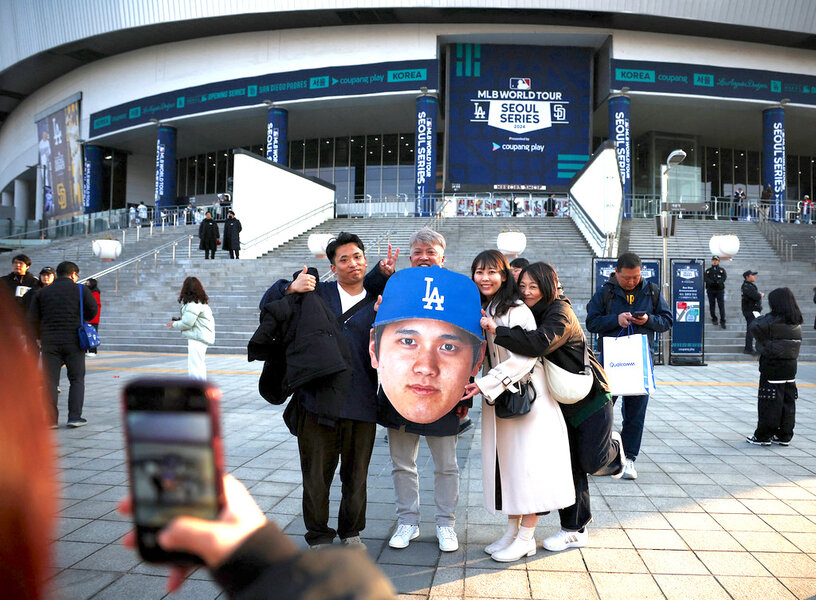Sports and love bridge an Asian rift
When Major League Baseball opened its season this week with a two-game series in South Korea, the event turned out to be about more than promoting the sport. It was a geopolitical icebreaker between two Asian neighbors long at odds over their history.
South Korean fans welcomed Shohei Ohtani, the Japanese star player of the Los Angeles Dodgers, almost like a homegrown hero. Some called him “the perfect person.” Whatever bilateral friction still exists from Japan’s colonization of Korea was greatly melted by Mr. Ohtani’s affection for South Korea, his unmatched baseball skills, and his kindness toward Korean fans.
His reception as an exemplary hero comes soon after a similar lovefest in Japan. The Japanese have fallen hard for a hit television series called “Eye Love You” that stars a charming Korean actor, Chae Jong-hyeop. The way that his character – speaking only Korean – romances the show’s Japanese female hero has led to a rush among the Japanese to learn the Korean language and adopt Korean dating styles.
These two universals – love and baseball – have perhaps now done as much to heal ties between Japan and South Korea as years of careful diplomacy by the United States and courageous leadership by some politicians. Just five years ago, bilateral ties were so low over how to deal with Japan’s 1910-1945 occupation of the Korean Peninsula that Koreans were boycotting Japanese products. In both countries, nationalist politicians have exploited the past to the detriment of reconciliation that would allow the two democracies to work closely against threats from North Korea and China.
In recent years, polls show a rising likability between the Japanese and South Koreans, especially among young people who readily embrace the other country’s cultural exports. A majority of young Koreans under age 29 also support the efforts of the current president, Yoon Suk Yeo, to improve ties with Japan.
Earlier this month, President Yoon said that the closer ties have helped deter North Korea. “Now, South Korea and Japan are working together to overcome the painful past and moving toward a ‘new world,’” he said. “The security cooperation between the two countries against North Korea’s nuclear and missile threats has been strengthened further.” The two countries, for example, now share information on North Korea’s actions in real time.
The so-called soft power of countries, such as sports or TV shows, really does have the power of attraction. Whatever the past between nations, there’s always a chance for a whole new ballgame that brings people together.





